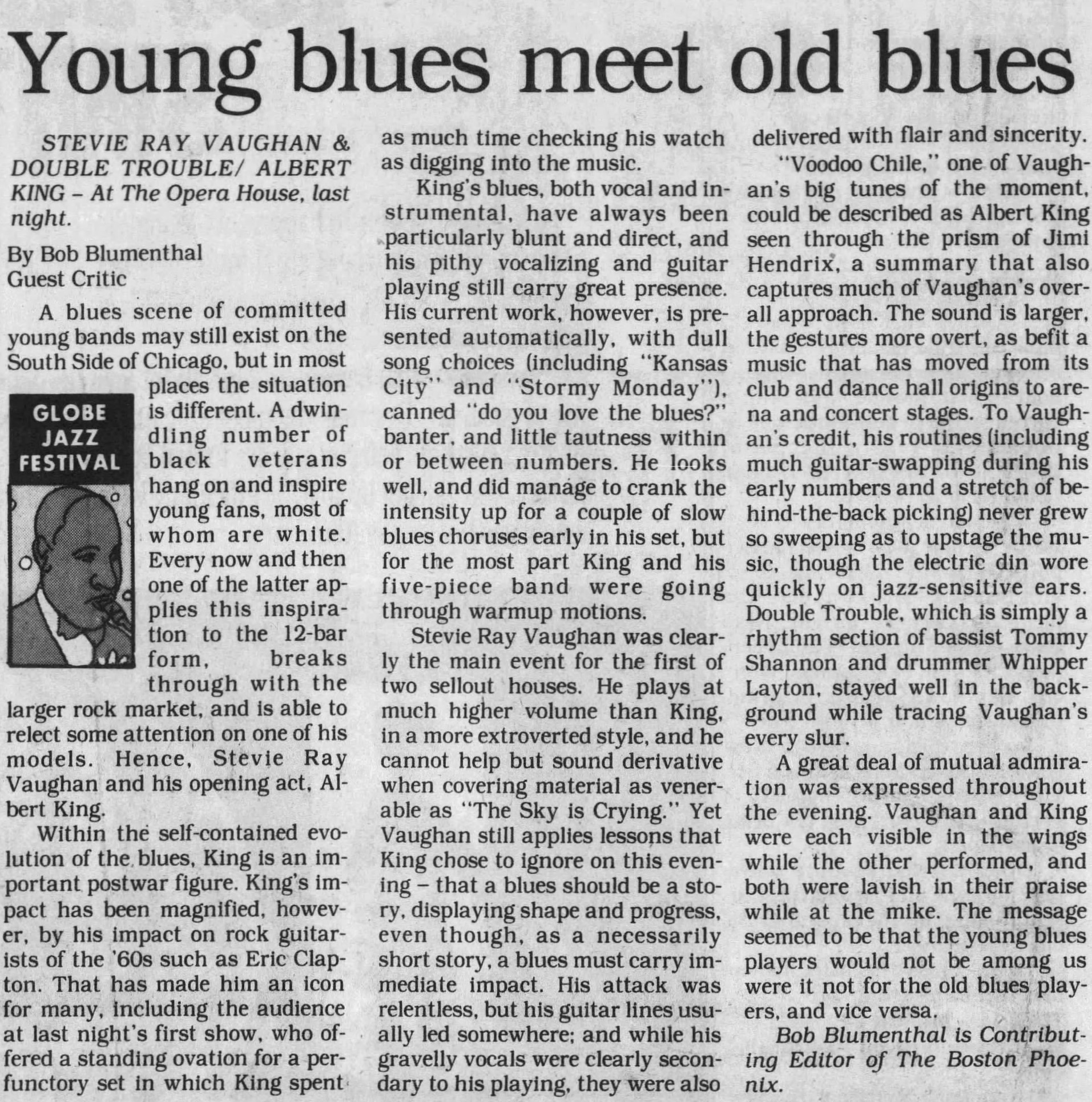
Show Photographs
(click to view full-size images)
© PHIL SPRING
Show Review
Young blues meet old blues
by Bob Blumenthal
The Boston Globe
March 24, 1985
A blues scene of committed young bands may still exist on the South Side of Chicago, but in most places the situation is different. A dwindling number of black veterans hang on and inspire young fans, most of whom are white. Every now and then one of the latter applies this inspiration to the 12-bar form, breaks through with the larger rock market, and is able to relect some attention on one of his models. Hence, Stevie Ray Vaughan and his opening act, Albert King.
Within the self-contained evolution of the blues, King is an important postwar figure. King's impact has been magnified, however, by his impact on rock guitarists of the '60s such as Eric Clapton. That has made him an icon for many, including the audience at last night's first show, who offered a standing ovation for a perfunctory set in which King spent as much time checking his watch as digging into the music.
King's blues, both vocal and instrumental, have always been particularly blunt and direct, and his pithy vocalizing and guitar playing still carry great presence. His current work, however, is presented automatically, with dull song choices (including "Kansas City" and "Stormy Monday"), canned "do you love the blues?" banter, and little tautness within or between numbers. He looks well, and did manage to crank the intensity up for a couple of slow blues choruses early in his set, but for the most part King and his five-piece band were going through warmup motions.
Stevie Ray Vaughan was clearly the main event for the first of two sellout houses. He plays at much higher volume than King, in a more extroverted style, and he cannot help but sound derivative when covering material as venerable as "The Sky is Crying." Yet Vaughan still applies lessons that King chose to ignore on this evening - that a blues should be a story, displaying shape and progress, even though, as a necessarily short story, a blues must carry immediate impact. His attack was relentless, but his guitar lines usually led somewhere; and while his gravelly vocals were clearly secondary to his playing, they were also delivered with flair and sincerity.
"Voodoo Chile," one of Vaughan's big tunes of the moment, could be described as Albert King seen through the prism of Jimi Hendrix, a summary that also captures much of Vaughan's overall approach. The sound is larger, the gestures more overt, as befit a music that has moved from its club and dance hall origins to arena and concert stages. To Vaughan's credit, his routines (including much guitar-swapping during his early numbers and a stretch of behind-the-back picking) never grew so sweeping as to upstage the music, though the electric din wore quickly on jazz-sensitive ears. Double Trouble, which is simply a rhythm section of bassist Tommy Shannon and drummer Whipper Layton, stayed well in the background while tracing Vaughan's every slur.
A great deal of mutual admiration was expressed throughout the evening. Vaughan and King were each visible in the wings while the other performed, and both were lavish in their praise while at the mike. The message seemed to be that the young blues players would not be among us were it not for the old blues players, and vice versa.
back to the gig index